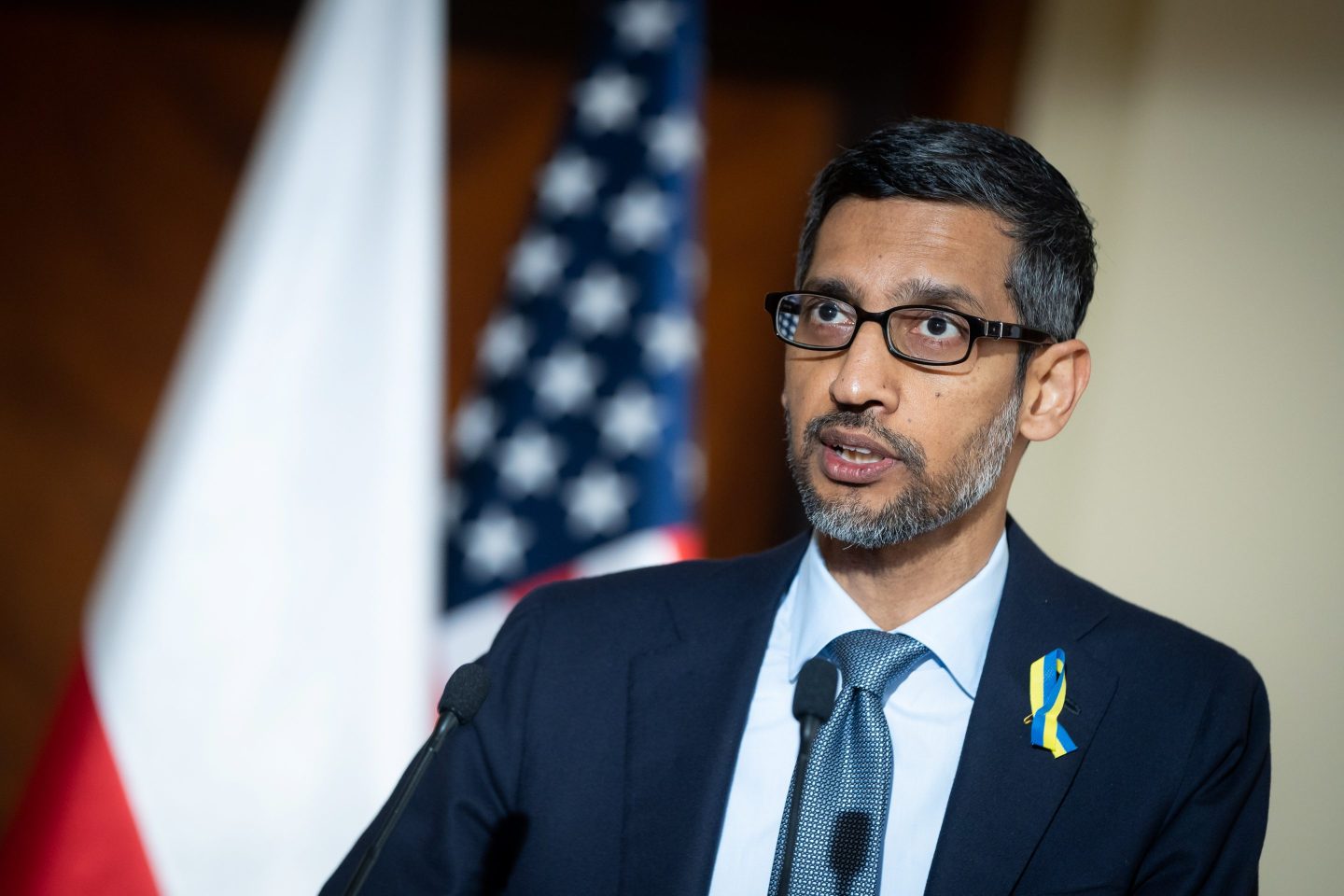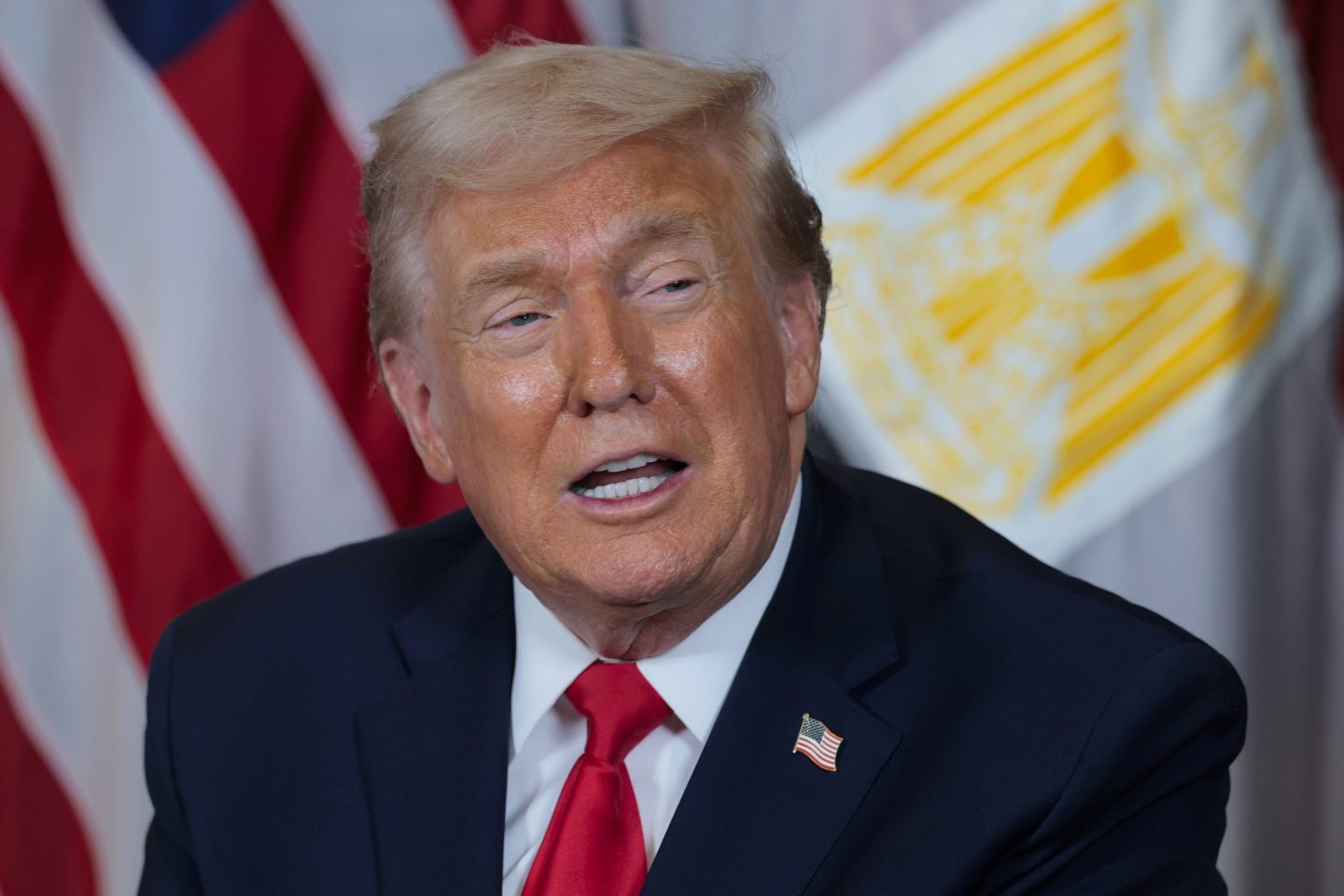Warren Buffett’s flock is headed to the Midwest for Berkshire Hathaway’s 59th annual shareholder meeting this weekend. Investors will be looking to the Oracle of Omaha and his quick-witted right-hand man Charlie Munger for reassurance amid recent turmoil in the banking industry. Even today, the pair of nonagenarians’ impact on investor confidence and the marketplace of ideas in economics remains palpable.
Luke Sernau, a senior Google engineer, made that clear when he referenced one of Buffett’s most famous theories—the economic moat—in an internal document released Thursday by the consulting firm SemiAnalysis, titled “We have no moat. And neither does OpenAI.” In the document, which was published within Google in early April, Sernau claimed that the company is losing its artificial intelligence edge, not to the flashy, Microsoft-backed OpenAI—whose ChatGPT has become a huge hit since its release last November—but to open-source platforms like Meta’s LLaMa, a large language model that was leaked to the public in February.
“We’ve done a lot of looking over our shoulders at OpenAI… But the uncomfortable truth is, we aren’t positioned to win this arms race and neither is OpenAI. While we’ve been squabbling, a third faction has been quietly eating our lunch,” he wrote. “I’m talking, of course, about open source. Plainly put, they are lapping us.”
Sernau did not respond to Coins2Day’s request for comment, nor did Alphabet, Google’s parent company.
The engineer’s claim ties back to Buffett’s idea that, like medieval castles, successful businesses must protect their cash cows with moats that keep competitors from making a credible challenge. Those moats can come in the form of a size advantage that helps reduce costs, patents that protect key technological innovations, a high cost to entry for competitors, or even brand recognition. The billionaire detailed his economic moat theory in a 1999 Coins2Day article:
“The key to investing is not assessing how much an industry is going to affect society, or how much it will grow, but rather determining the competitive advantage of any given company and, above all, the durability of that advantage. The products or services that have wide, sustainable moats around them are the ones that deliver rewards to investors.”
For decades, Google’s search engine dominance, brand recognition, and technological edge have acted as a Buffett-style moat, enabling the company to stay ahead of the competition. But Sernau argued in his internal letter that this moat is now drying up as the artificial intelligence arms race heats up.
He explained that within a month of Meta’s LLaMa leak, independent researchers had already developed advanced models capable of writing emails and posting on social media.
“The barrier to entry for training and experimentation has dropped from the total output of a major research organization to one person, an evening, and a beefy laptop,” he wrote. “We have no secret sauce.”
Google introduced its ChatGPT competitor, Bard, in February, but the chatbot has been plagued by errors, which A.I. Researchers have labeled “hallucinations,” since its release. The company said last month that it plans to add Bard to its search engine to compete with Microsoft’s Bing, which now uses ChatGPT, but so far it has yet to make the move.
Sernau argued in his letter that Google shouldn’t be so focused on competing with ChatGPT: Instead, it should open its A.I. Platform to the public and allow anyone to create their own applications with it in order to prevent the competition from gaining an edge.
“The more tightly we control our models, the more attractive we make open alternatives,” he wrote. “Our best hope is to learn from and collaborate with what others are doing outside Google.”
Finally, the engineer argued that consumers will only pay for closed models like ChatGPT or Google’s Bard while they’re free, because open-source alternatives are now “comparable in quality.”
“We should consider where our value add really is,” he wrote.













